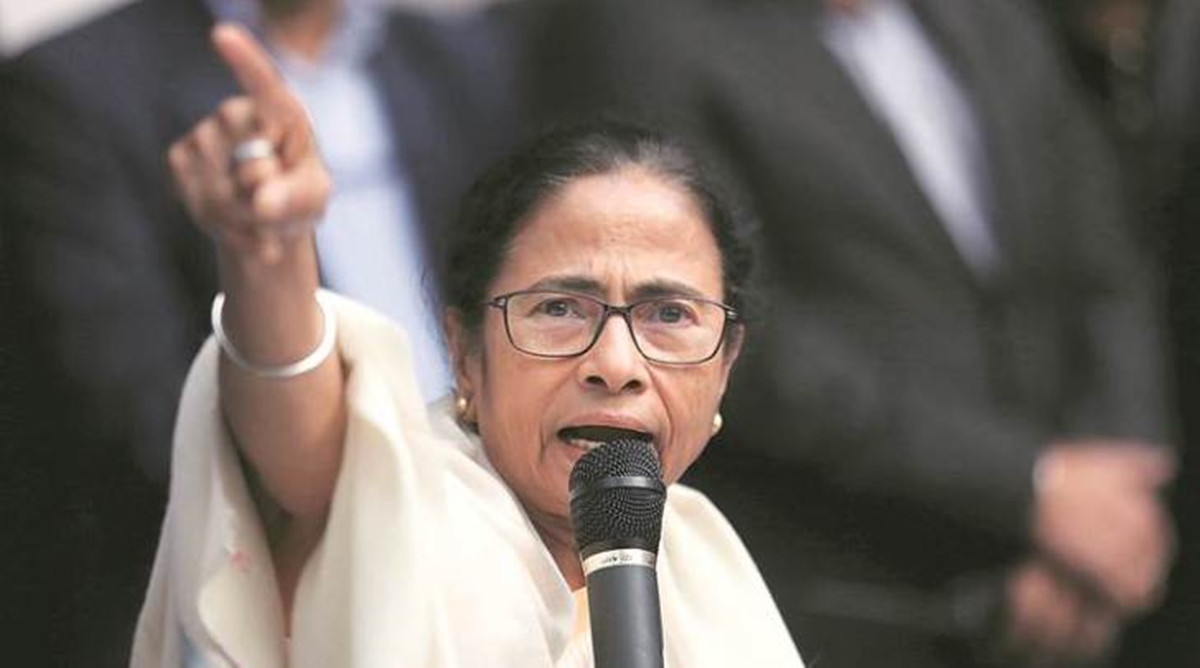 Mamata Banerjee (File Photo)
Mamata Banerjee (File Photo) A commission set up by the Mamata Banerjee government to address grievances related to public services did not conduct a single hearing between 2015, when it was set up, and 2019, a Right to Information (RTI) activist has found.
Two years after coming to power, the Trinamool Congress (TMC) administration enacted the West Bengal Right to Public Services Act, 2013 (WBRTPS Act), and in 2015 it set up the West Bengal Right to Public Service Commission to ensure proper implementation of the law.
In response to queries from socio-legal researcher and activist Biswanath Goswami under the Right to Information (RTI) Act — first raised on December 8, 2017 — the Department of Consumer Affairs admitted that between 2015 and 2019 the commission did not conduct a single hearing on matters related to its mandate.
The government body, meanwhile, spent Rs 40 crore to publicise its work and the WBRTPS Act. The commission also admitted that till date it had not done anything to ensure and enforce time-bound service to the public under the Act.
Goswami told The Indian Express, “A notice was sent on the matter and such astonishing revelations were made by the commission itself. This commission has been purposefully crippled and made inactive because of vested interests. It has only made huge expenditures in advertising and awareness campaigns.”
Actor Rudranil Ghosh, who was the commissioner of the statutory body till December 18 last year, claimed that the organisation was not given sufficient manpower to implement the law properly.
Under the Act, it was sanctioned 20 posts, including a chief commissioner and a commissioner. Ghosh — who, according to sources, is set to meet BJP leader Kailash Vijayvargiya soon — also alleged that the Department of Consumer Affairs, the nodal department, did not cooperate with the commission.
“The commission has immense potential but the department never provided us sufficient manpower to address different problems faced by people while trying to access different government services. We approached the department multiple times to provide us sufficient infrastructure but they were not ready to help us,” Ghosh said.
He claimed that the commission had no control over the advertisements and awareness programmes it ran. “The power of authorisation was with the consumer affairs department. Many times we told the department that to give us control of advertisements, we also tried to control the fund. But the department never allowed us to do so. We wanted the language of advertisements in cities like Kolkata and in villages to be different. We told that to department officials, but they finalised all these things single-handedly.”
Consumer Affairs Minister Sadhan Pande, however, dismissed the allegations. “I do not want to say anything unpleasant. He should tell us what he has done in the last five years and how many days he came to office. He got a huge monthly salary as commissioner. He designed the advertisements and we carried them,” Pande added.
According to the department, Ghosh drew a salary of nearly Rs 3 lakh till the end of his tenure. In its RTI reply, the government said it does not have the actor’s attendance and leave records.
Goswami said, “The commission and the nodal department, Consumer Affairs, have confirmed that the responsibility of the commission and the commissioner is to design advertisements and publicity campaigns. The chief commissioner has to supervise all such matters of the commission. But they cannot dispose of appeals and complaints to ensure timely delivery of public services. The department engaged private advertising agencies for advertisements and publicity purposes and gave huge advertisements.”
However, the rules of the commission contradict the administration’s claims. According to the rules, the commission can take “suo moto” notice of a failure to deliver services and refer such cases for disposal. The government body can also inspect officers entrusted with the delivery of services along with appellate officers and review officers. The commission, the rules state, may also recommend departmental action against any state government employee for failing to discharge functions mentioned under the Act.
The law also empowers the government body to put forward recommendations to make service delivery more transparent and easier, provided that the secretary of the concerned department is consulted before the recommendations are made.
The commission, however, admitted in reply to Goswami’s queries that it had made no recommendations since being set up.
In all these years, it has only visited the districts of Howrah, Hooghly, Nadia, South and North 24 Parganas, Paschim Bardhaman, and the offices of the West Bengal Board of Secondary Education. According to an official in the nodal department, neither any action was taken nor any report was submitted after these visits.
The commission told Goswami that it spent Rs 6.64 crore in the 2015-’16 financial year, while the following year Rs 6.4 crore was spent. In 2017-’18, the expenditure was Rs 5.66 crore. However, in the 2018-’19 financial year, the expenditure almost quadrupled to Rs 21.88 crore. According to the records, the money was spent on the implementation of the WBRTPS Act, and publicity campaigns.